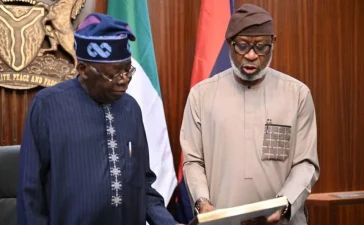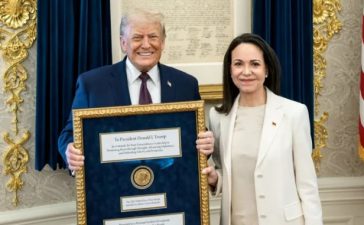In an effort to expedite the decongestion of overcrowded ports burdened with excessive overtime cargo, the Comptroller-General of Customs, Bashir Adewale Adeniyi MFR, officially launched a committee on the Disposal of Overtime Cargo on November 8, 2023, at the Nigeria Customs Service Headquarters in Abuja.
This development is a response to the provisions set forth in the new Customs Act, empowering the NCS to dispose of containers that have exceeded their allotted time within the ports.
CGC Adeniyi stressed that alleviating port congestion is of paramount importance to the Nigeria Customs Service, as well as President Ahmed Bola Tinubu, who aims to enhance efficiency and facilitate trade.
“It is worth noting that approximately six months ago, the new NCS Act received former President Mohammed Buhari’s signature, leading to significant modifications in the protocols governing the disposal of overtime cargo,” stated the CGC.
According to him, the NCS Act 2023 mandates that the disposal of cargo exceeding its allotted time can now only be done through a court order.
“The Act also stipulates that goods must be disposed of through public auction or tender, which should be widely publicized in advance through national newspapers, television, and the service’s official website,” explained the CGC.
Recognizing this initiative, Durowaiye Ayodele, the General Manager of MD’s office at the Nigerian Ports Authority, expressed his relief, highlighting the issue of over 7,000 overtime containers that have remained at the ports for years.
“We have containers that have been there for over ten years, occupying economic space for which we are unable to dispose. So this is a significant relief for our operations. We are delighted that we have reached a point where we can begin to remove some of these lingering containers and overdue cargo from the port,” he stated.
In his remarks, Deputy Comptroller General of Customs, in charge of Human Resources Development, Greg Itotoh, affirmed that with the support of the Nigerian Ports Authority, the changes and new procedures will ensure more streamlined trade operations.
The committee will be chaired by a senior officer from the Nigeria Customs Service, with members including representatives from the Attorney General of the Federation and Minister of Justice, the Federal Ministry of Finance, the Nigerian Police Force, the Department of State Service (DSS), Nigerian Ports Authority (NPA), the National Agency for Food, Drugs and Control, a representative of the Economic and Financial Crimes Commission, and the Independent Corrupt Practices Commission, among others.
President Tinubu further implored committee members to demonstrate maximum commitment and hard work in ensuring the success of the new electronic Civil Registration and Vital Statistics (eCRVS) system for the progress, peace, and development of the country.







